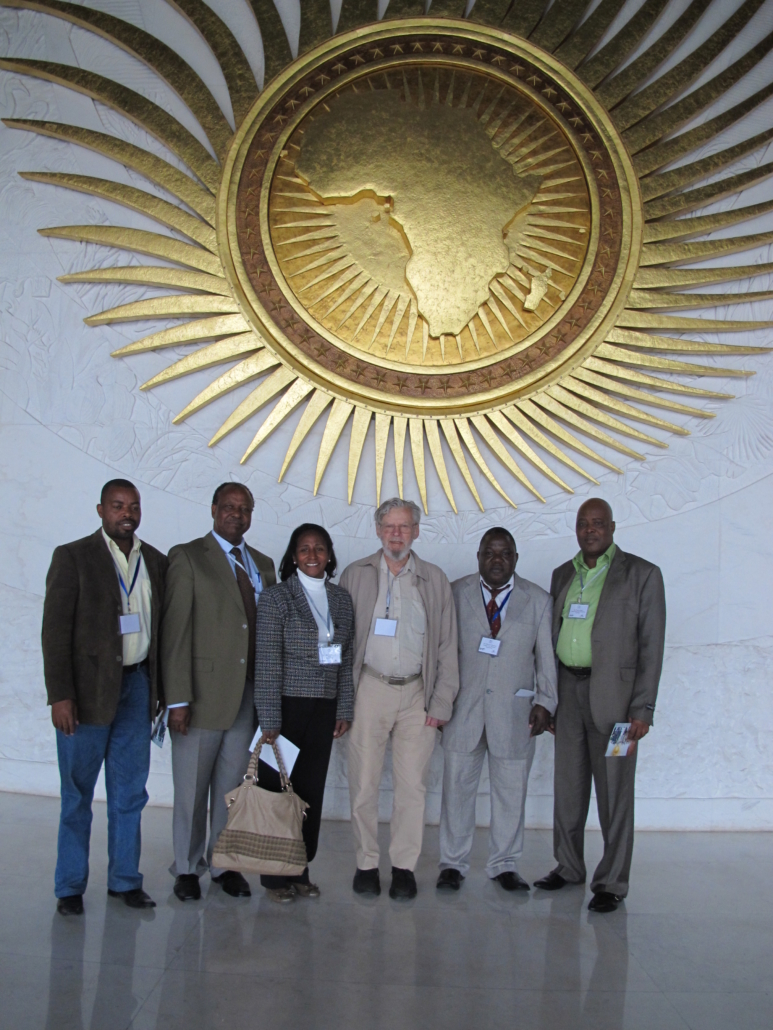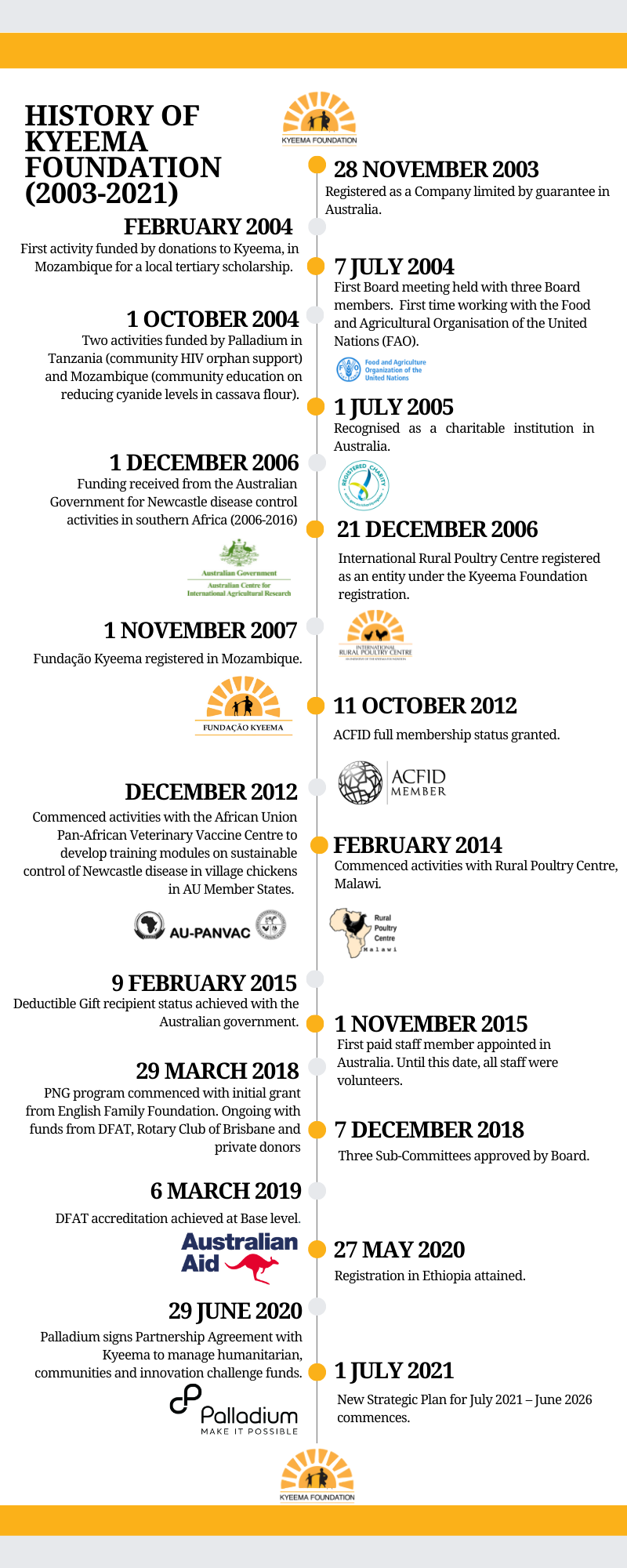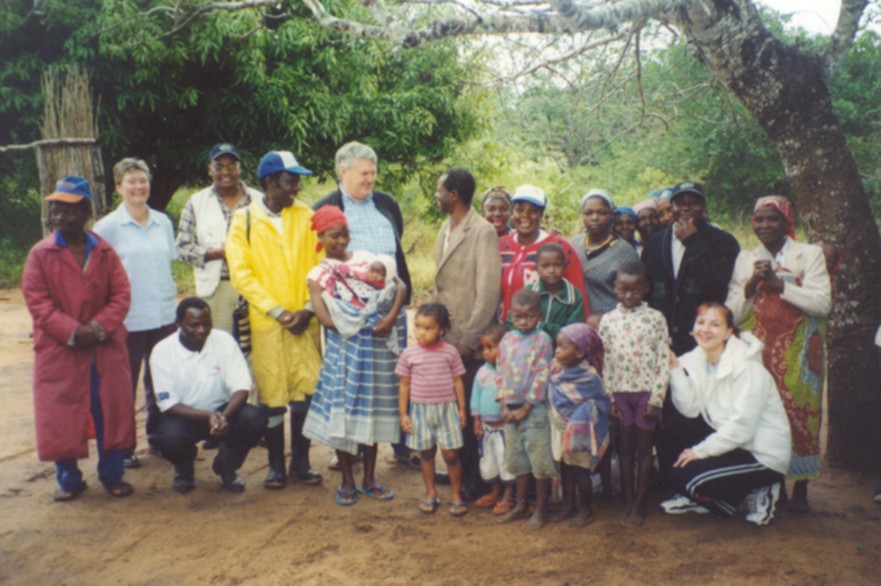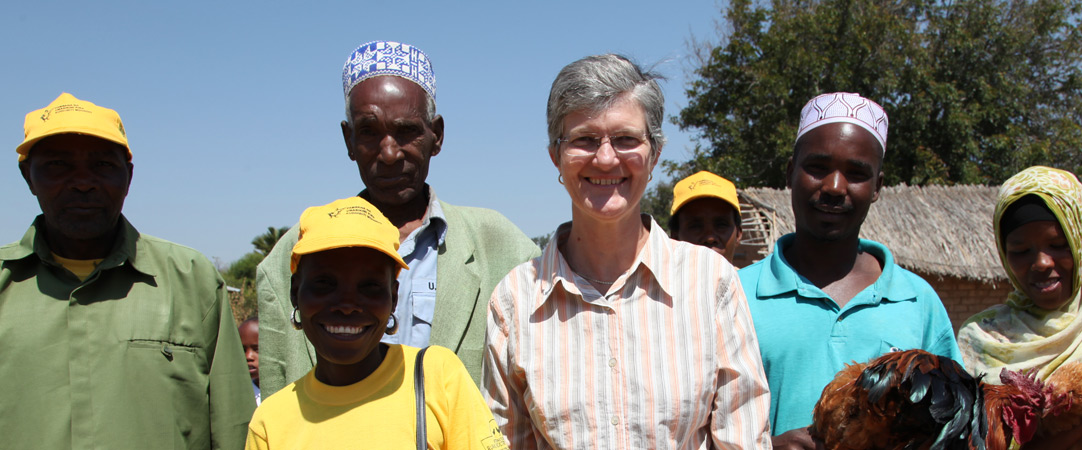Our history
What’s in a name?
A locally empowered approach to improving community health and prosperity has motivated Kyeema members since our establishment in 2003. This feeling of empowerment, one that is often felt at the beginning of a new day, is captured in the meaning of the word Kyeema – an Australian Aboriginal word describing a beautiful dawn.
A history of innovation in animal health and welfare
Founded to promote animal health and welfare for human health and prosperity, Kyeema was formed by a group of Australian veterinary and agricultural scientists who wanted to promote a model of sustainable Newcastle disease (ND) control for village chickens kept by rural families globally. ND, which is endemic across Asia and Africa, kills 50-100% of chickens every time there is an outbreak, destroying the economic and food security of entire communities and contributing to the seasonal struggle with crop food shortages.
In the late 1980s, Professor Peter Spradbrow from the University of Queensland, with funding from the Australian Centre for International Agricultural Research, developed a thermotolerant ND I-2 vaccine for village chickens. This vaccine does not rely on a stable chain of refrigeration for it to remain effective and is therefore extremely effective in areas where power supply is unreliable. In the late 1990’s, a comprehensive set of training materials for community-led ND vaccination campaigns were developed in Mozambique with Australian government support. In 2002, the Australian government funded Palladium (then GRM International) to implement a project to scale up these ND control activities and expand from Mozambique to Tanzania and Malawi. They also made the I-2 Master seed available to governments worldwide at no cost to developing countries that wanted to produce vaccines locally. The training materials developed have now been modified for use in many countries across Africa and Asia and are available free of charge on Kyeema’s website. Since 2020, we have been trialling the use of these materials as training videos and e-learning modules, in response to the COVID-19 pandemic.
Read more about the history of the ND I-2 vaccine here.
The late Emertius Professor Peter Spradbrow (centre) who developed the ND-I2 vaccine with veterinary colleagues at the African Union.
From little things, big things grow
In November 2003, Kyeema Foundation (Kyeema) was set up as an Australian registered not-for-profit to continue this important work, with the goal of improving the health and prosperity of marginalised communities globally. With support from Palladium, Dr Stewart Routledge instigated the set-up in collaboration with Professor Peter Spradbrow. Originally, all Kyeema staff were volunteers but over time we have grown our ranks of core staff and volunteers. Palladium has continued to support Kyeema as a key corporate partner. Kyeema has grown with this support, becoming a member of the Australian Council for International Development (ACFID) in 2011, receiving Deductible Gift Recipient status from the Australian Tax Office in 2015 and being accredited to the Department of Foreign Affairs and Trade Australia NGO Cooperation Program (DFAT ANCP) in 2019.
Our founding CEO Celia Grenning (second from left) and founding Director Dr Stewart Routledge (fifth from left) with a Mozambican community in 2003.
Dr Robyn Alders (above) spearheaded research testing for the I-2 ND vaccine in the field. She worked with communities in Mozambique. There they developed the community vaccinator model for sustainable Newcastle disease control.




